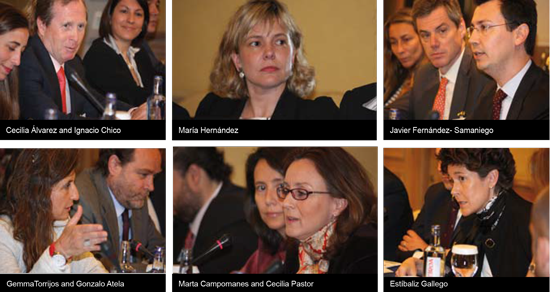Audit firms breaking into Spanish top tier
The Big Four are now among the largest in the market, their success a result of changing market conditions and client perceptions
A distinct feature of the Spanish legal market in recent years has been the growth of the legal arms of the Big Four audit firms, according to a recent ranking by Expansión. This growth is driven by a clear internal strategy and also an increased willingness of clients to look beyond traditional law firms, say lawyers within the Big Four.
PwC Tax & Legal, KPMG Abogados, Deloitte Abogados and Ernst & Young Abogados now feature among the top seven firms in Spain by revenue. Only Garrigues, Uría Menéndez and Cuatrecasas, Gonçalves Pereira generate more in fees, with Gómez-Acebo & Pombo, Baker & McKenzie and Clifford Chance making up the rest of the top-ten leaders of the pack.
In terms of lawyer numbers, the legal arms of the audit firms are also among Spain’s largest. PwC Tax & Legal numbers around 900 professionals, including around 500 lawyers and 90 partners; KPMG counts around 650 lawyers including 44 partners; Deloitte has close to 600 lawyers including 38 partners, while EY Abogados has around 420 lawyers including 30 partners. Again, only Garrigues (1775 lawyers/290 partners), Cuatrecasas (918/ 243) and Uría Menéndez (534/116) match them for scale.
“The audit firms are challenging the status quo in terms of growth, management efficiency and the sophistication of the clients they now service,” says Santiago Hurtado, who recently joined Deloitte as Head of Litigation and Bankruptcy from Broseta, where he has led the Insolvency practice since 2011. “The areas of client demand that have grown out of the crisis reflected the core competences of firms like Deloitte – through practices like administrative, labour and employment, insolvency and tax – but which have been added to through targeted hires in areas like corporate, litigation, penal and IT.”
Increased client fee sensitivity and a greater emphasis on compliance by major companies has also played to their strengths, suggest some. Influenced by the relative success of their associated audit and consulting arms, the Big Four legal practices were quick to adjust their billing structures and develop new services aimed, for example, at risk – thus capitalising on the emergence of compliance as a dedicated business function aligned to companies’ legal departments.
Success has also come as clients have become more comfortable with the unbundling of legal services, especially in transactional issues, say lawyers. It may still be the best-established law firms that lead on the remaining major M&A and private equity deals, but the audit firms now regularly feature, with due diligence a growth area for most.
Hurtado, however, questions the perception that the relative success of the audit firms will come to a rapid halt when the economy begins to improve, and that the growth of firms such as Deloitte is merely the result of mopping up the large numbers of relatively junior lawyers that have flooded the market during the downturn. Deloitte, for example, saw seven percent growth last year – KPMG recorded an estimated 10 percent growth – while firms such as Garrigues and Uría Menéndez saw numbers fall by 4.5-4.9 percent.
“The crisis has more than ever helped to demonstrate the attraction of the multidisciplinary model – my experience is that such firms are managed very efficiently, are very profitable and attracting more big name partners,” he says. “A significant change is happening to the Spanish legal market and, I can tell you, at Deloitte we are competing with the biggest law firms for the most complex and high value deals in the market.”
This is not, therefore, simply a volume business, he concludes.











